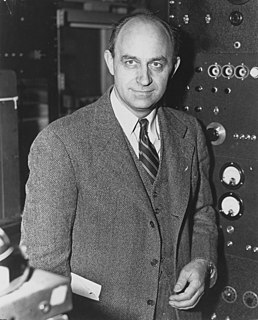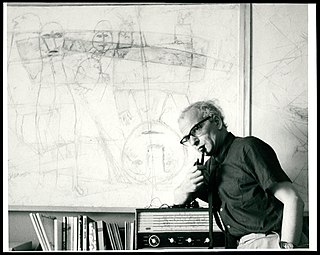A Quote by Enrico Fermi
An experiment disproving a prediction is discovery.
Quote Topics
Related Quotes
[Coining phrase "null hypothesis"] In relation to any experiment we may speak of this hypothesis as the "null hypothesis," and it should be noted that the null hypothesis is never proved or established, but is possibly disproved, in the course of experimentation. Every experiment may be said to exist only in order to give the facts a chance of disproving the null hypothesis.
It is better to travel with hope in one's heart than to arrive in safety. . . . We should celebrate today's failure because it is a clear sign that our voyage of discovery is not yet over. The day the experiment succeeds is the day the experiment ends. And I inevitably find that the sadness of ending outweighs the celebration of success.
So the history of discovery, particularly cosmic discovery, but discovery in general, scientific discovery, is one where at any given moment, there's a frontier. And there tends to be an urge for people, especially religious people, to assert that across that boundary, into the unknown, lies the handiwork of God. This shows up a lot.


































